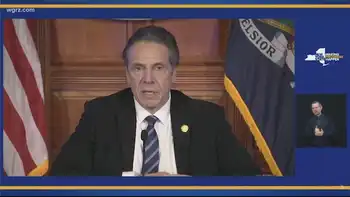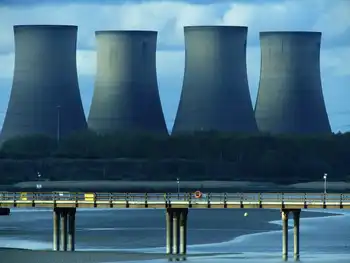Canada PM unveils $1B for Kyoto
OTTAWA -- - Prime Minister Jean Chrétien says he's introducing Canadians "to the future" with a new $1-billion spending program to combat global warming.
But environmentalists said that while he has made a good first step, his plan for meeting Kyoto Protocol commitments is short on detail and still missing key elements.
Chrétien officially recently unveiled the spending program, which includes home energy- efficiency rebates, technology funding and a huge array of other measures, during a speech in a solar-powered building at the University of Ottawa.
He said his government is taking a "forward-looking approach" to climate change.
"I have always believed that the fundamental role of government is to introduce the present to the future," the Prime Minister said.
"Extreme weather events around the world, and here in Canada, have underscored the harsh reality of climate change. Scientists have sounded the warning. We have no choice but to act. It is our moral responsibility, it is in our enduring interest, and it is an imperative that is strongly felt by Canadians."
The federal government predicts the $1-billion package will buy 12 to 20 megatonnes of reductions in greenhouse gas emissions — a small portion of the 240 megatonnes Canada must cut by 2010.
The government has divided the new funding into three categories:
$131.4 million in measures targeted at individuals, including a program offering rebates of up to $1,000 for people who make their homes more energy-efficient and an advertising campaign to persuade every Canadian to reduce his greenhouse gas emissions by roughly one-fifth, or one tonne.
Assistance worth $302.9 million to business and industry to reduce emissions, including a rebate program for commercial building retrofits, and another $250 million to encourage the development of new technologies.
$320.7 million to fund partnerships with provinces and territories, programs with aboriginal and northern communities, and energy-efficiency improvements to federal buildings and federal fleets.
Chrétien made the announcement flanked by Environment Minister David Anderson and Industry Minister Allan Rock. All three left without answering any questions.
Natural Resources Minister Herb Dhaliwal, another key minister on the Kyoto file, said in a phone interview that the spending plan aims to get individuals, industry and governments to do their bit.
"We're trying to cover a lot of different areas," said Dhaliwal, who missed the event to release the plan because of family commitments.
"You're not going to make everyone happy," he added.
Dhaliwal recently had an energy-efficiency audit of his own Ottawa home and is now taking steps such as improving insulation in the roof. However, the minister has no plans to swap his families' two SUVs in favour of more fuel-efficient vehicles, though the minister stressed most of his time on the road is spent in a government car powered by natural gas.
The recent announcement brings the total amount committed to climate change programs over the last five years to more than $3.7 billion.
Climate-change activists offered some praise for the government's latest effort, but said they want more specifics on how the programs will work and called for more to be done.
"This is okay to start, but it's what they do next that's critical," said John Bennett, executive director of the Climate Action Network. "We need to give them a shove towards the next step, which has got to be regulation. This cannot be achieved without regulation."
Bennett is waiting for regulations ensuring the country's biggest industrial polluters do their share and mandatory fuel-efficiency standards for cars.
Matthew Bramley of the Alberta-based Pembina Institute also said the government has so far focused on incentives to encourage greenhouse gas emission cuts, but must add strong regulation to the mix. "We've seen a lot of carrots announced; now we need to see some sticks," he said.
Government officials said industrial emission regulations will come eventually, but likely not before the end of next year. And, for now at least, the government is working on a voluntary approach to persuading automakers to improve fuel efficiency.
Bramley's other key concern is the lack of any significant new investments in public transit and renewable electricity.
The business community, meanwhile, was cool to the government's funding plan.
"There's still no concrete set of measures that show how we're going to meet our Kyoto targets," said Nancy Hughes Anthony of the Canadian Chamber of Commerce.
She also questioned the amount the government is spending.
There was similar criticism from Canadian Alliance Leader Stephen Harper. Canadians would have very different priorities with a billion dollars, he said.
"This is just the beginning of the biggest black-hole boondoggle in Canadian history."
Related News

New York State Moratorium on Utility Disconnections During Emergencies
NEW YORK - Governor Andrew M. Cuomo has announced a proposal to prohibit utility disconnections in regions that are under a state of emergency as part of the 2021 State of the State. The Governor will propose legislation that will apply to electric, gas, water, telecommunications, cable and internet services. Utilities that fail to comply will be subject to penalties.
“In a year in which we dealt with an unprecedented pandemic, ferocious storms added insult to injury by knocking out power for hundreds of thousands of New Yorkers,” Governor Cuomo said. “Utility companies provide essential services, and we need to make…




